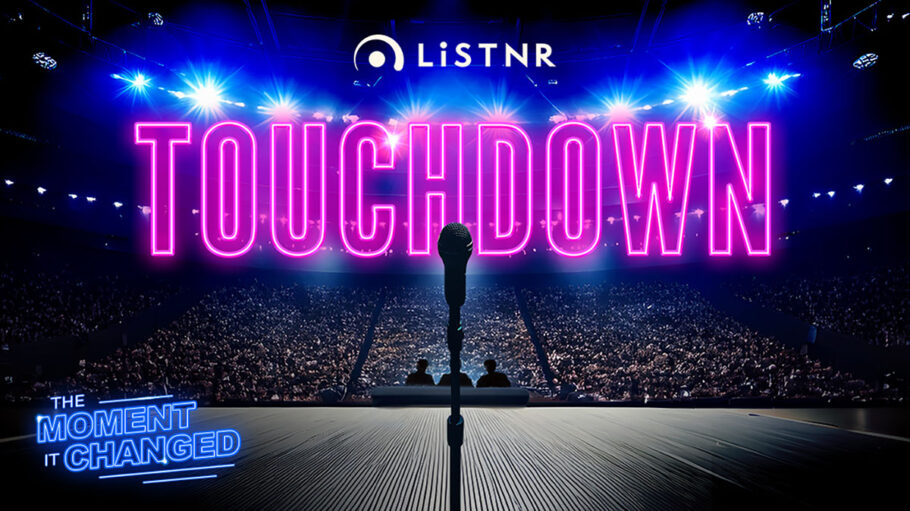A new LiSTNR podcast is pulling no punches in its exposé of Australia’s reality music television empire — revealing a disturbing pattern of artist exploitation, coercive contracts, and industry complicity that has left many contestants traumatised and unsupported.
“The Moment It Changed: Touchdown,” hosted by former label executive and broadcaster Nic Kelly, unpacks the carefully manufactured chaos behind “Australian Idol,” “Popstars,” “The Voice” and “X Factor Australia.” Across three episodes, the podcast lays bare how commercial imperatives and ratings-driven agendas took precedence over the well-being and long-term careers of young artists.
In one of the most jarring revelations, “Australian Idol” contestant Rob “Millsy” Mills recounts a post-show panic attack so severe it left him contemplating suicide. “I felt so overwhelmed,” Mills says. “I noticed that the door to my balcony on the 36th floor or something was open. And I just had that split second moment of like, you could just end it… I still get really sad for that kid. He was just so scared… And no one was there to go, ‘Hey mate, it’s gonna be a bit shit for a bit.’”
According to Mills, contestants had little control once they were through the initial audition rounds. “Once you get into the top 100, a lawyer turns up to talk through it all, if you want to go past the top 100, you have to sign these three contracts, a record deal, three years of your likeness and everything about you to a company that’s going to do all your merchandising, and you also signed a management contract,” he explains. “Once you sign this, the option is ours to take up this option, it’s not yours, it’s ours, and I was like, well, why not? I was just enjoying the ride. So yeah, we all, we all signed up.”
That imbalance of power is a recurring theme throughout the series. Dami Im, winner of “X Factor Australia” in 2013, says she was forced to perform despite illness after a record label CEO reportedly remarked: “If Delta can do an in-store while she has cancer, Dami can do an in-store with a cold.”
Im also reveals how her management, paid by the record label, failed to advocate for her. “His role should have been to stand up for me, and talk to the label, get what I need and negotiate, but he was being paid by the record label,” she says. “And I didn’t understand that this was a huge conflict of interest.”
And while the public may assume labels foot the bill for music videos and promotion, Im says the reality is far different. “When you make a music video through a label, they might pay for it upfront, but then when the album makes money, then the income that should come to me, you got to pay off the label what they spent on at first. So essentially like it is my money, but it’s like, getting a loan from the bank and you got to pay it all back.”
Karise Eden, winner of “The Voice Australia,” details a mental health breakdown triggered by an interaction with strangers claiming to know her estranged father. “I ended up in a mental health unit,” Eden says. “And the record company, everyone was screaming like, ‘Don’t let this get out, don’t let it get to the media.’”
Eden’s emotional state was disregarded in favour of protecting brand reputation. “I remember standing out the front of the hospital, with my arms all bandaged up,” she recalls. “And my manager’s like, ‘We’re cancelling the tour…’ And I’m like, ‘No, I’m fine. I’ll sing the show tomorrow.’”
Even behind the scenes, manipulation was systemic. Former “Idol” Executive Producer Stephen Tate admits producers were told to keep “bad singers” in the show to entertain audiences. “To ridicule somebody who clearly doesn’t have talent is just cruel, and it should never have happened,” Tate says. “Honestly, I think we were laughing at them, not with them. And I just don’t think that’s fair.”
Former “Idol” judge Ian “Dicko” Dickson is blunt about the commercial intent of the shows. “If you want to get on TV, go for it. If you want a career, no. In 2025, I absolutely cannot advise someone who’s serious about being in the music industry to go on a reality TV show… The only reason they will get picked or advanced is because they can deliver good television — not because they’ve got potential to be a recording artist or sell tickets.”
There were, of course, a lot of highs—Guy Sebastian’s winning vote numbers and his jaw-dropping first royalty cheque from BMG, for example, that also get a mention. However, Dickson is clear that “Idol” didn’t reshape the music business, despite appearances. “If it had changed the music industry, we would still be seeing it. We were a blip—a fucking big blip—but it was a blip.”
Produced by music journalist Cameron Adams, senior producer Jake Morcom and LiSTNR’s Factual team, the podcast pulls together voices from across the ecosystem—contestants, judges, producers—all of whom now reflect on an industry machine that prioritised product over people, and fame over function.
Kelly added: “I was a huge fan of the original ‘Australian Idol’ growing up, and reality music TV helped develop my love for music and pop culture in general. But as someone who works in both media and music, I knew what we see on TV isn’t the whole story. I hope some of what we have uncovered will open people’s eyes to what goes into a musician’s choice to appear on these shows, and what could be done to make them more effective for new artists.”
“The Moment It Changed: Touchdown” is available now on the free LiSTNR app.































